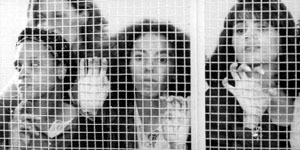Nouvelles créations africaines : un dossier spécial Masa-Fespaco
– Musique, théâtre, danse et cinéma : la critique de tous les spectacles du Masa d’Abidjan et des films du Fespaco de Ouagadougou. Un outil de connaissance et de débat. Face à la pensée unique, les artistes d’Afrique s’émancipent du regard occidental et explorent de plus en plus une intimité partagée, utilisant pour cela des formes épurées.
Entretiens avec metteurs en scène et réalisateurs.
Ezezam or the Vice
This young Cameroonian company, who were already present at the last Masa, leave you perplexed. « Esesam or the Vice » multiplies the clichés and the choreographic awkwardness. Set to live music…









